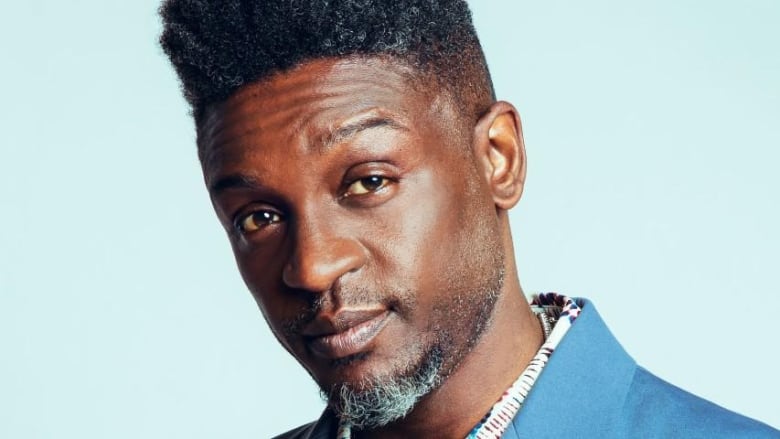Why Rwandan-Canadian singer Corneille thinks Montreal summer festivals are so important
Corneille is the spokesman for Montreal's Festival International Nuits d'Afrique

When Cornelius Nyungura first arrived in Montreal in 1997 from Rwanda via Germany, the aspiring musician had been traumatized by the assassination of his parents and siblings during the Rwandan genocide of 1994.
But Montreal's summer scene, packed with amiable crowds and summer music festivals, many featuring international music, left him "blown away."
"I think it was precisely because I came during the festival season that you know, a young man, 20 years old with a lot of trauma and stuff, felt like he had found home," he said.
"Had I arrived in the middle of February, 20, I think I might have considered going back to Germany. It might have been a bit too rough for me."
More than 20 years and eight albums later, Nyungura is a successful singer in Quebec known by his stage name Corneilleand a vocal advocate for live music, even in pandemic times.
As spokesman for Montreal's Festival International Nuits d'Afrique (FINA), he says the show must go on. Whether that will be in person or virtually will depend on public health guidelines.
"During festival season, Montreal is just breathing cultural exchange," he said. "So many cultures meet [and] seem to be not only co-existing harmoniously but also in a complementary way."
Nuits d'Afrique showcases African, Caribbean and Latin American artists. Last year, it had to move online but it's gearing up for its 35th edition in person if all goes according to plan this summer.
Corneille credits international festivals, such as Nuits d'Afrique, for introducing North American audiences to African beats at a time when streaming music wasn't possible. He says they also allowlisteners to confront their biases.
"If you're going to live in a place where some people are saying stuff or think in a way that totally disagrees with your beliefs the smarter thing to do is to speak to them and understand them so they can understand you."
Still, he says, most listeners don't realize the influence African music has on mainstream hits.
"Until Burna Boy won a Grammy, I don't think people in North America or especially the youth would associate Africa with 'cool,'" he said. "[Africa] has always been this exotic destination and a place that produced a lot of exotic tales."
The festival intends to feature indoor and outdoor performances at the Quartier des Spectacles between July 6 and July 18, depending on public health restrictions.
If those outdoor concerts aren't possible, it will highlight artists through virtual concerts.

Bridging gaps with music
For Corneille, Montreal's music festivals are more than about musicians on stages.
They are an opportunity for people from different backgrounds and cultures to mix and learn from each other.
"Something doesn't catch real momentum until people feel like it's not that exotic anymore. It actually has some relevance to what they're consuming as far as culture."
His latest album, Encre Rose expected to be released this fall will feature party-friendly melodies. He says it was important for him to pay tribute in French, his mother tongue, to the 1970s and early 1980s soul and funk music that influenced his own work.
But the album also has a message about having the courage to build social harmony.
"I've been trying to find ways to engage in conversations with people that I don't agree with in order to find some kind of place of understanding," he said.
From new arrival to role model
Although he's usually on tour when FINA takes place, Corneille says the pandemic time is an opportunity for him to approach the festival with "fresh eyes."
His debut album, Parce qu'on vient de loin, will turn 20 next year, making the singer reconsider his relationship with the next generation of artists.
"As my career evolves, I'm getting more interested in promoting other artists and finding the next wave of artists that are going to be important in the coming years," he said.
"I'm at that point where I'm not looking at other artists and how they can inspire me, I'm looking at them and thinking about how I can be of service to them."
For more stories about the experiences of Black Canadians from anti-Black racism to success stories within the Black community check out Being Black in Canada, a CBC project Black Canadians can be proud of.You can read more stories here.













_(720p).jpg)


 OFFICIAL HD MUSIC VIDEO.jpg)
.jpg)



























































































